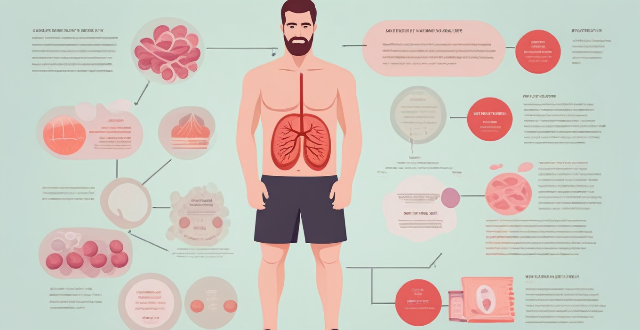Exercise System

Can exercise boost the immune system ?
Exercise can indeed boost the immune system through various mechanisms, including enhanced circulation, reduced inflammation, weight management, stress reduction, improved sleep, increased self-esteem and mental health, microbiome diversity, temperature regulation, prevention of chronic diseases, and social interaction. Regular moderate exercise is generally considered beneficial for the immune system, but it's essential to consult with healthcare professionals to determine the appropriate amount and intensity of exercise for individual needs and circumstances.

How does regular exercise contribute to boosting the immune system ?
Regular exercise has numerous health benefits, including boosting the immune system. It promotes increased blood circulation, reduces inflammation, helps in weight management, reduces stress, improves sleep quality, enhances gut health, increases antioxidant capacity, supports cardiovascular health, enhances mental health, and contributes to increased longevity. Incorporating regular physical activity into your lifestyle can support a strong and resilient immune system.

Does consistent exercise reduce the risk of catching colds and flu ?
Regular physical activity is known for its health benefits, including potential protection against colds and flu. Studies suggest that exercise can enhance immune system function by improving circulation and inducing a mild inflammatory response. However, the evidence is mixed, with some studies showing a clear link between regular exercise and reduced respiratory infections, while others do not. Potential mechanisms include improved immune surveillance, stress reduction, and increased circulation of immune cells. To benefit from these effects, it is recommended to engage in moderate to high levels of physical activity, such as 150 minutes of moderate aerobic activity or 75 minutes of vigorous activity per week, along with strength training exercises. Overtraining should be avoided, as it can weaken the immune system. Good hygiene practices are also essential for preventing colds and flu.

How does consistent physical activity affect the immune system in relation to chronic disease prevention ?
The article discusses the impact of consistent physical activity on the immune system and its role in preventing chronic diseases. It explains that regular exercise can increase the number and activity of immune cells, reduce inflammation, and improve overall health. The article also provides recommendations for exercise and emphasizes the importance of incorporating physical activity into one's lifestyle to prevent chronic diseases and improve well-being.

How does exercise influence self-esteem ?
Exercise has a profound impact on self-esteem, positively influencing confidence, body image, and mental health. Physical benefits include weight management through fat reduction and muscle tone, as well as improved cardiovascular health and immune system function. Mental benefits include stress reduction through endorphin release and mindfulness, and enhanced cognitive function with improved memory and problem-solving abilities. Social benefits come from community building through group activities and support systems, as well as personal achievement through goal setting and feedback. Overall, regular physical activity can significantly enhance self-esteem by promoting physical, mental, and social well-being.

Can excessive training have negative effects on the immune system ?
Excessive training, or overtraining, can have negative effects on the immune system. Regular exercise enhances immune function by stimulating antibody and white blood cell production, reducing inflammation, and improving circulation. However, excessive training can cause chronic inflammation, oxidative stress, and hormonal imbalances that suppress immune function. Signs of overtraining syndrome include chronic fatigue, mood changes, and increased susceptibility to illness. To prevent overtraining and maintain immune health, individuals should follow a balanced training program, prioritize sleep, eat a nutrient-rich diet, and manage stress levels.

What are the benefits of aerobic exercise ?
Aerobic exercise, also known as "cardio," is a form of physical activity that increases your heart and breathing rate. It's any activity that keeps large muscles moving in a rhythmic manner for an extended period of time. Some examples include brisk walking, jogging, swimming, cycling, and dancing. The key benefits of aerobic exercise include improved heart health, weight management, boosted immune system, improved lung function, reduced stress, improved sleep, boosted mood, increased brain volume, slowed age-related cognitive decline, improved stamina, enhanced bone health, and promoted longevity. Incorporating aerobic exercise into your lifestyle can greatly improve your quality of life.

Why is it important to warm up before exercise ?
Warming up before exercise is crucial for preparing the body, preventing injuries, and improving performance. Benefits include increased blood flow, raised body temperature, loosened joints, prepared nervous system, reduced cardiovascular risk, and enhanced workout results.

How does regular exercise improve the quality of life ?
Regular exercise is vital for a healthy lifestyle, enhancing physical and mental well-being significantly. It strengthens the immune system, controls weight, prevents diseases, and increases energy levels. Mentally, it reduces stress, improves mood, boosts self-esteem, and enhances brain function. Socially, it promotes interaction, provides a sense of community, and encourages healthy competition. Regular exercise is an investment that pays lifelong dividends.

How does aerobic exercise impact lung capacity and function ?
Aerobic exercise can increase lung capacity and improve lung function by strengthening the muscles used for breathing, stimulating the respiratory system, and increasing gas exchange efficiency. Regular aerobic exercise can also reduce the risk of respiratory diseases, improve immune function, and reduce inflammation in the airways.

How does regular exercise contribute to occupational health ?
**Summary: Regular Exercise in Occupational Health** The article discusses the role of regular exercise in promoting occupational health, which encompasses physical, mental, and social well-being. It outlines the benefits of regular physical activity, including improved stamina, reduced injury risk, enhanced immune system, stress reduction, better cognitive function, increased resilience, team building, and a healthy work-life balance. The text emphasizes that incorporating exercise into daily routines can significantly enhance job performance and overall employee well-being. Employers are encouraged to implement wellness programs with exercise initiatives to foster a healthier and more productive workforce.

Is it safe to exercise while taking immunosuppressant medications ?
Is it safe to exercise while taking immunosuppressant medications? This article explores the potential risks and benefits of exercising while taking immunosuppressant medications. While these drugs are essential for many people, they can also have side effects that may impact a person's ability to exercise safely. The primary concerns associated with exercising while taking immunosuppressant medications include an increased risk of infection, fatigue and weakness, and musculoskeletal issues. However, regular exercise has been shown to improve mental health, enhance immune function, and reduce the risk of chronic diseases. It is generally safe for individuals taking immunosuppressant medications to exercise, but they should take certain precautions to minimize their risk of infection and other potential complications.

How does dehydration during exercise affect performance and physiological responses ?
Dehydration during exercise can significantly impact performance and physiological responses. It decreases blood volume, impairs thermoregulation, affects cognitive function, increases heart rate and blood pressure, causes respiratory alkalosis, leads to muscle cramping and stiffness, and alters metabolic processes. Athletes should stay hydrated to avoid these negative effects.

How does regular exercise contribute to overall health management ?
This text discusses the importance of regular exercise for overall health management, highlighting its physical, mental, and emotional benefits. It emphasizes that exercise not only helps maintain physical health but also significantly contributes to mental and emotional well-being. The article lists various ways in which regular exercise contributes to overall health management, including improving cardiovascular fitness, aiding in weight management, enhancing muscle and bone health, boosting the immune system, preventing chronic diseases, reducing stress, improving mood, enhancing cognitive function, boosting self-esteem, providing opportunities for social interaction, and contributing to personal achievement. The text concludes by emphasizing that regular exercise is a crucial tool for managing overall health and that incorporating it into one's lifestyle is one of the best investments one can make for their health and well-being.

How long after starting a new exercise routine can improvements in immunity be expected ?
Regular exercise has numerous health benefits, including improved cardiovascular health, weight management, and mental well-being. One of the lesser-known benefits is its positive impact on the immune system. Improvements in immunity can be observed within a few weeks of starting a regular exercise program, depending on individual factors such as current fitness level, intensity and duration of exercise sessions, and overall lifestyle habits. By incorporating regular physical activity into your daily routine, you can enhance your immune function and enjoy the numerous other health benefits associated with exercise.

Can aerobic exercise improve my cardiovascular health ?
Aerobic exercise is essential for maintaining and improving cardiovascular health, offering benefits such as strengthened heart muscle, lowered blood pressure, increased HDL cholesterol, reduced inflammation, weight management, improved circulation, and better blood sugar regulation. Regular aerobic activities like walking, jogging, cycling, swimming, or group fitness classes can significantly enhance overall heart health. The American Heart Association recommends at least 150 minutes of moderate-intensity aerobic exercise weekly, spread throughout the week, to achieve these benefits.

Is it safe to start a new exercise program during pregnancy ?
Is it safe to start a new exercise program during pregnancy? This article explores the topic, highlighting health benefits and potential risks. It emphasizes consulting with healthcare providers, choosing appropriate exercises, and monitoring body responses for safety.

How does exercise affect sleep patterns and quality ?
Exercise significantly influences sleep patterns and quality. Immediate effects include increased alertness and better body temperature regulation for sleep. Long-term, regular exercise improves sleep quality and regulates sleep patterns. Different types of exercise—aerobic, anaerobic, and mindful movements like yoga—all positively affect sleep but may require varying recovery times. The timing of exercise is crucial; morning workouts set the day's tone with minimal sleep interference, while late-night exercises can hinder sleep preparation. Tailoring workout routines to individual needs optimizes rest and overall well-being.

Is there a specific duration or intensity of exercise needed to improve immune function ?
The relationship between exercise and immune function is complex, but research suggests that regular physical activity can enhance the immune system. However, both the duration and intensity of exercise play significant roles in achieving this beneficial effect. The American Heart Association recommends at least 150 minutes of moderate-intensity aerobic activity or 75 minutes of vigorous-intensity activity per week for adults. Engaging in prolonged periods of endurance exercise can temporarily suppress immune function due to increased stress on the body. Light activities like walking or yoga can still offer immune benefits by reducing stress and promoting overall health. Regular moderate to high-intensity exercises, such as jogging, cycling, or strength training, are generally considered optimal for enhancing immune function. Adequate rest and recovery are crucial for maintaining a healthy immune system. Combining different types of exercises (aerobic, strength training, flexibility work) can provide a well-rounded approach to enhancing immune function. Staying hydrated and consuming a balanced diet rich in nutrients supports both exercise performance and immune health. Other lifestyle habits, including sleep quality, stress management, and avoidance of harmful substances, also play a vital role in supporting immune function alongside exercise.

How does exercise benefit employees in the workplace ?
Exercise benefits employees in the workplace by improving health and well-being, increasing productivity, promoting teamwork, and providing long-term business advantages such as lower healthcare costs and higher employee retention.

Can exercising too close to bedtime interfere with sleep ?
Exercising too close to bedtime can interfere with sleep due to factors like increased heart rate, elevated body temperature, release of stimulating hormones, activation of the nervous system, muscle soreness, and digestive activity. To avoid sleep interference, it's recommended to finish workouts at least 3 hours before bedtime, choose lighter exercises closer to bedtime, create a calming pre-sleep routine, and be mindful of post-exercise nutrition.

How does exercise contribute to mental rejuvenation ?
Exercise plays a crucial role in mental rejuvenation by releasing endorphins, improving blood flow, enhancing neuroplasticity, reducing stress, improving sleep quality, facilitating social interaction, and boosting self-esteem. Regular physical activity can significantly contribute to improved cognitive functions, emotional stability, and overall mental well-being.

How does age affect heart rate during exercise ?
Age affects heart rate during exercise by altering the structure and function of the aging heart, reducing maximum heart rate, shifting autonomic regulation towards sympathetic dominance, and decreasing cardiac reserve. Older individuals can still improve their cardiovascular fitness through regular exercise and lifestyle modifications.

What is the role of exercise physiology in improving athletic performance ?
Exercise physiology, a branch of science that studies the body's responses to physical activity, is crucial for improving athletic performance. It helps in understanding the body's reaction to different exercises, training methods, and recovery strategies. By applying these principles, athletes can optimize their training programs and enhance their results in sports. The text discusses the following key points: 1. **Understanding the Body's Response to Exercise**: This includes the differences between aerobic and anaerobic energy systems and muscle fiber types, which are crucial for determining suitable exercises for various activities. 2. **Optimizing Training Programs**: Periodization, intensity, and volume are essential elements in planning effective training programs. 3. **Recovery Strategies**: Proper nutrition, sleep, and active recovery techniques aid in post-exercise recovery. 4. **Injury Prevention and Rehabilitation**: Biomechanics, strength, and flexibility training play significant roles in preventing injuries. In conclusion, exercise physiology provides valuable insights into how the body responds to various training stimuli and recovery strategies, allowing athletes to make informed decisions about their training programs. This knowledge enables them to improve performance, prevent injuries, and achieve their goals more effectively.

Why is it a mistake to believe that more exercise automatically leads to better health ?
The belief that more exercise automatically leads to better health can be a mistake due to several reasons such as overexertion and injury risk, neglect of other aspects of health, cardiovascular strain, hormonal imbalances, and mental health impact. It is important to recognize that more is not always better and a balanced approach that incorporates appropriate amounts of exercise along with attention to nutrition, rest, and overall wellness is key to achieving optimal health outcomes.

Does exercise have a greater impact on mental health than meditation ?
Exercise and meditation are both beneficial for mental health, but it is difficult to determine which has a greater impact. Exercise can reduce stress and anxiety, improve self-esteem and cognitive function, and promote better sleep. Meditation can also reduce stress and anxiety, improve emotional regulation and self-awareness, and promote positive thinking. The effectiveness of each practice may vary depending on individual preferences and circumstances. It is important to choose a practice that suits your needs and engage in it regularly for optimal results.

Can exercise reverse or slow the progression of existing chronic diseases ?
**Can Exercise Reverse or Slow the Progression of Existing Chronic Diseases?** Chronic diseases like diabetes, heart disease, and cancer often require lifelong management. Many wonder if exercise can play a role in mitigating these conditions. This discussion explores the potential benefits of physical activity for those with chronic illnesses. **Benefits of Exercise for Chronic Diseases:** - **Cardiovascular Disease**: Improved blood pressure, reduced risk of heart attack, enhanced lipid profile. - **Diabetes**: Better blood sugar control, aid in weight management, reduced complications. - **Cancer**: Improved quality of life, reduced fatigue, potentially better survival rates. **How Exercise Contributes to These Benefits:** - Increased blood flow ensures better organ oxygenation and nutrient delivery. - Anti-inflammatory effects alleviate symptoms of chronic diseases. - Boosted immune function helps fight infections and potentially cancer cells. **Implementing an Exercise Program:** - **Consultation**: Always consult your healthcare provider before starting. - **Gradual Progression**: Start slowly and build up over time. - **Balanced Routine**: Include cardio, strength training, and flexibility exercises. - **Monitoring Response**: Track how your body responds to different exercises. **Conclusion:** While exercise might not reverse chronic diseases outright, it significantly slows their progression and enhances well-being. Tailoring an exercise program under medical guidance allows those with chronic conditions to actively manage their health, improving their quality of life.